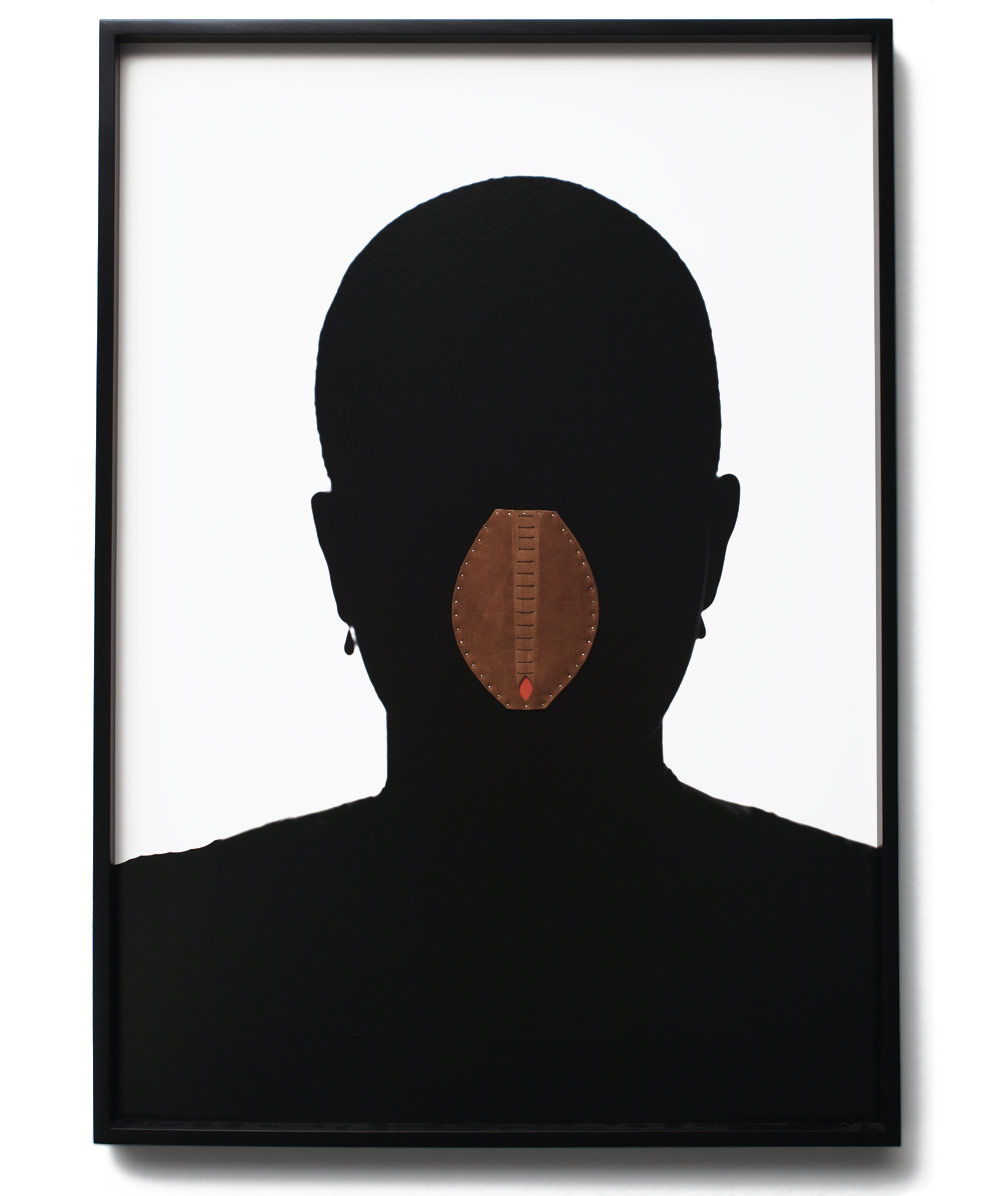Autograph loaned 5 works by artist Aida Silvestri from our collection to the Martin Parr Foundation in Bristol, for Intersectional Geographies. This exhibition brought together a diverse selection of photographers whose works address inclusion within society at a time of climate crisis, social distancing and human rights violations.
Aida Silvestri's artworks were commissioned in 2016 by Autograph as part of her powerful series Unsterile Clinic, raising awareness of the widespread practice of Female Genital Mutilation (FGM). Inspired by personal experience, Silvestri began an in-depth investigation into the practice in 2015, and began interviewing and photographing women living in London. Silvestri’s sculptural photo-works are presented with text poems based on interviews conducted with participants whose personal testimonies provide harrowing insight into their experiences. Some have since undergone reconstructive or reversal procedures – which part-remedies the physical damage inflicted onto their bodies, yet the psychological and emotive scars remain in perpetuity.
"After comparing the stories of women from Mali, Gambia, Eritrea, Ethiopia, Sudan, Somalia, Kenya and Djibouti, I discovered that the majority of FGM cases in the United Kingdom are diagnosed during pregnancy or labour. The aim of this project is to raise awareness in the hope that women, young girls and children, who may not realise the severity or the kind of FGM type they have, are encouraged to attend early screening processes before an emergency occurs. I also hope that this project empowers medical staff to have the courage to speak openly, and the visual tools necessary, when examining women affected by FGM."
— Aida Silvestri
Categorisation of FGM types are not fixed, varying and constantly changing. Working closely with NHS specialist clinics, Silvestri created her own distinct set of sub-categories (adapted from the list published by the World Health Organisation); these are visualised as intrinsic leather pieces stitched onto the black silhouette portraits, and also used as visual aids during medical consultations. Each leather piece is handcrafted and unique, reflecting the particular type of FGM the women portrayed were subjected to: collectively they illustrate the different stages of tissue removal, cutting and stitching, whereas the distinct leather tones resemble the participants’ individual skin colours.
In 2016, Autograph exhibited the work at our gallery in London, and commissioned Silvestri to create six new portraits in the series.


Aida Silvestri (born 1978, Eritrea) is a visual activist whose multi-faceted practice amplifies marginalised voices and migrant communities – raising awareness of human rights issues and representational politics in the arts and beyond.
Using innovative modes of mixed media portraiture, Silvestri’s celebrated projects Even This Will Pass (2013 – 2014) and Unsterile Clinic (2015) respectively address people trafficking by highlighting the perilous journeys undertaken by economic and political refugees, and advocate for survivors of gender-based violence by drawing attention to the widespread practice of female genital mutilation. Both series were published, exhibited and part-commissioned by Autograph.
You can see more of Silvestri's work on her website.
Silvestri's new commission Contagion: Colour on the Front Line is on display now at Autograph's gallery in London, part of our exhibition Care | Contagion | Community — Self & Other
Find out moreCan you spare a few moments? Autograph is carrying out a survey to better understand who our digital audiences are. The survey should take no longer than five minutes to complete. Anything you tell us will be kept confidential, is anonymous and will only be used for research purposes.
The information you provide will be held by Autograph and The Audience Agency, who are running the survey on our behalf. In compliance with GDPR, your data will be stored securely and will only be used for the purposes it was given.
You can take the survey here. Thank you!
Loan images, from top: 1) Aida Silvestri, Type I B -
Clitoradectomy, from Unsterile Clinic, 2015 - 16. Courtesy Aida Silvestri / Autograph, London. 2) Aida Silvestri, Type I C, from Unsterile Clinic, 2015 - 16. Courtesy Aida Silvestri / Autograph, London. 3) Aida Silvestri, Type II G, from Unsterile Clinic, 2015 - 16. Courtesy Aida Silvestri / Autograph, London. 4) Aida Silvestri, Type I B - Clitoradectomy, from Unsterile Clinic, 2015 - 16. Courtesy Aida Silvestri / Autograph, London. 5) Aida Silvestri, Type III C - Infibulation, from Unsterile Clinic, 2015 - 16. Courtesy Aida Silvestri / Autograph, London.
Discover more images: 1) Care | Contagion | Community — Self & Other exhibition at Autograph, London. 23 Sep 2021 – 12 Feb 2022. Curated by Renée Mussai, Mark Sealy and Bindi Vora. Photograph by Zoë Maxwell. 2 - 4) Works from Aida Silvestri's commission Contagion: Colour on the Front Line, 2020. Commissioned by Autograph for Care | Contagion | Community — Self & Other: 2) A Great Leveller [detail]. 3) Cacao [detail]. 4) The Motherland Calls [detail].
Autograph is a space to see things differently. Since 1988, we have championed photography that explores issues of race, identity, representation, human rights and social justice, sharing how photographs reflect lived experiences and shape our understanding of ourselves and others.